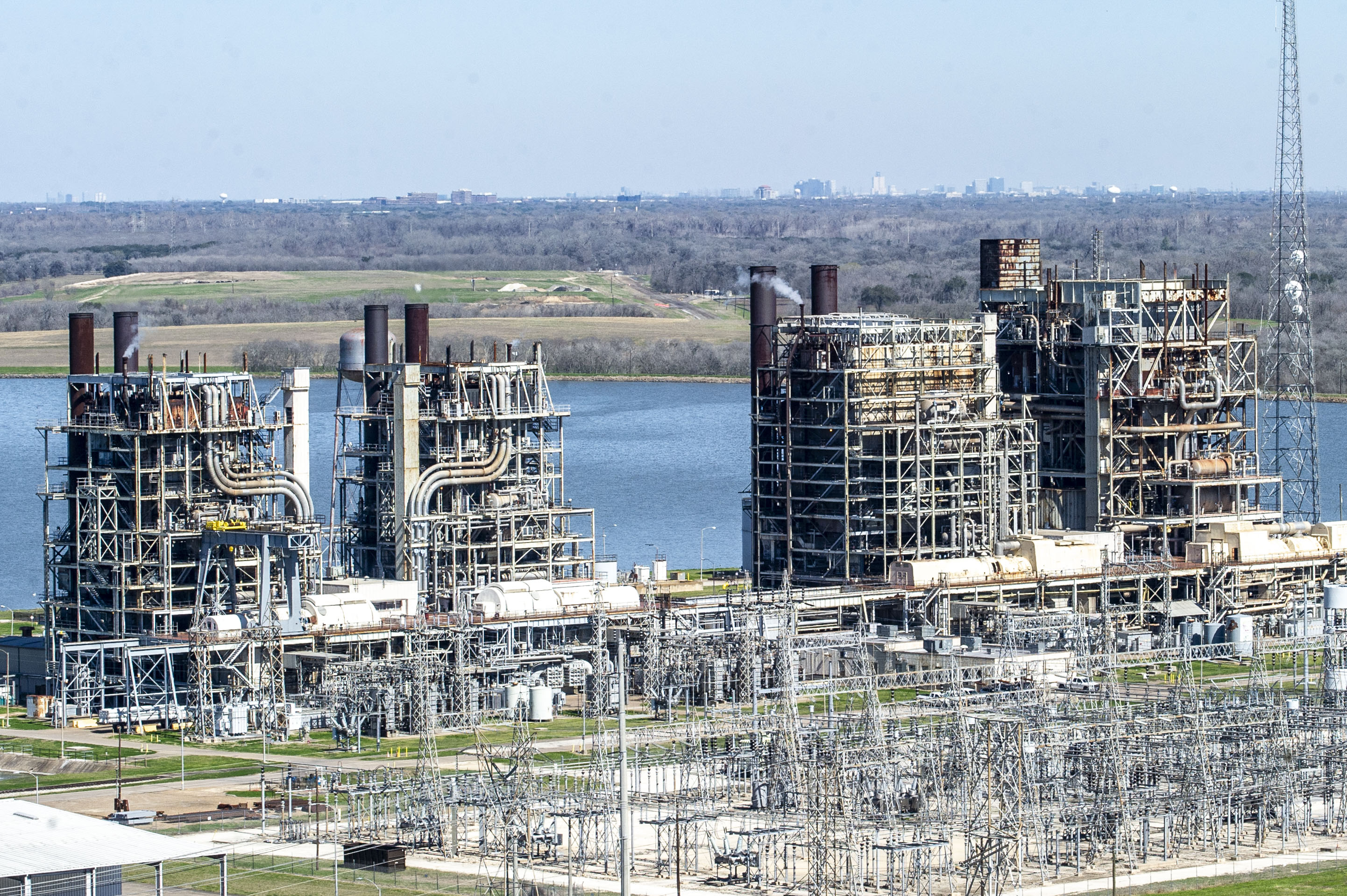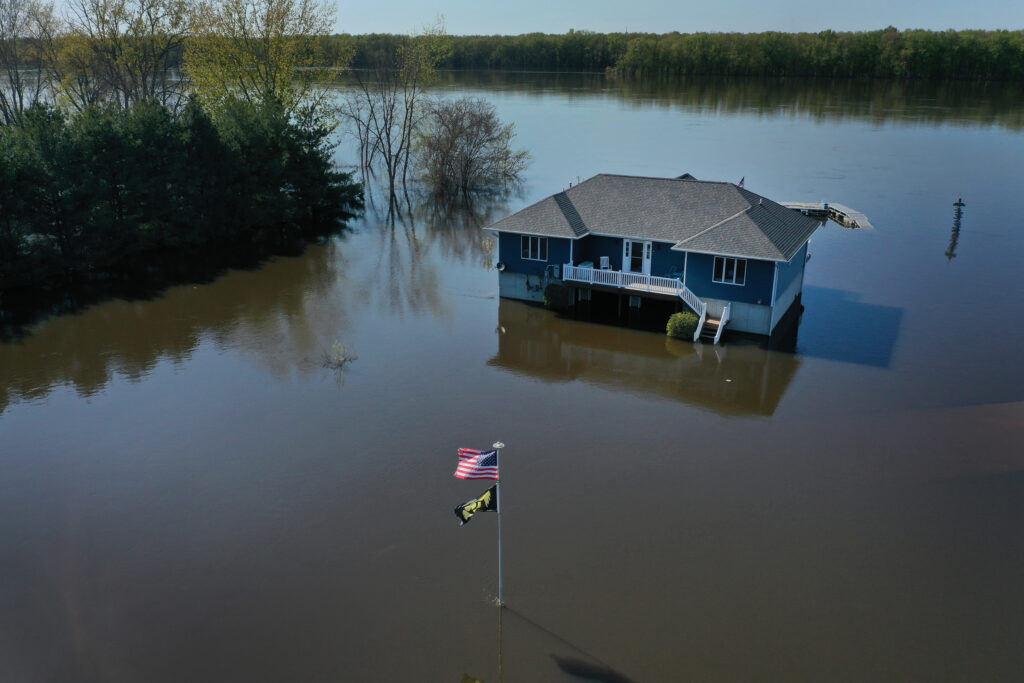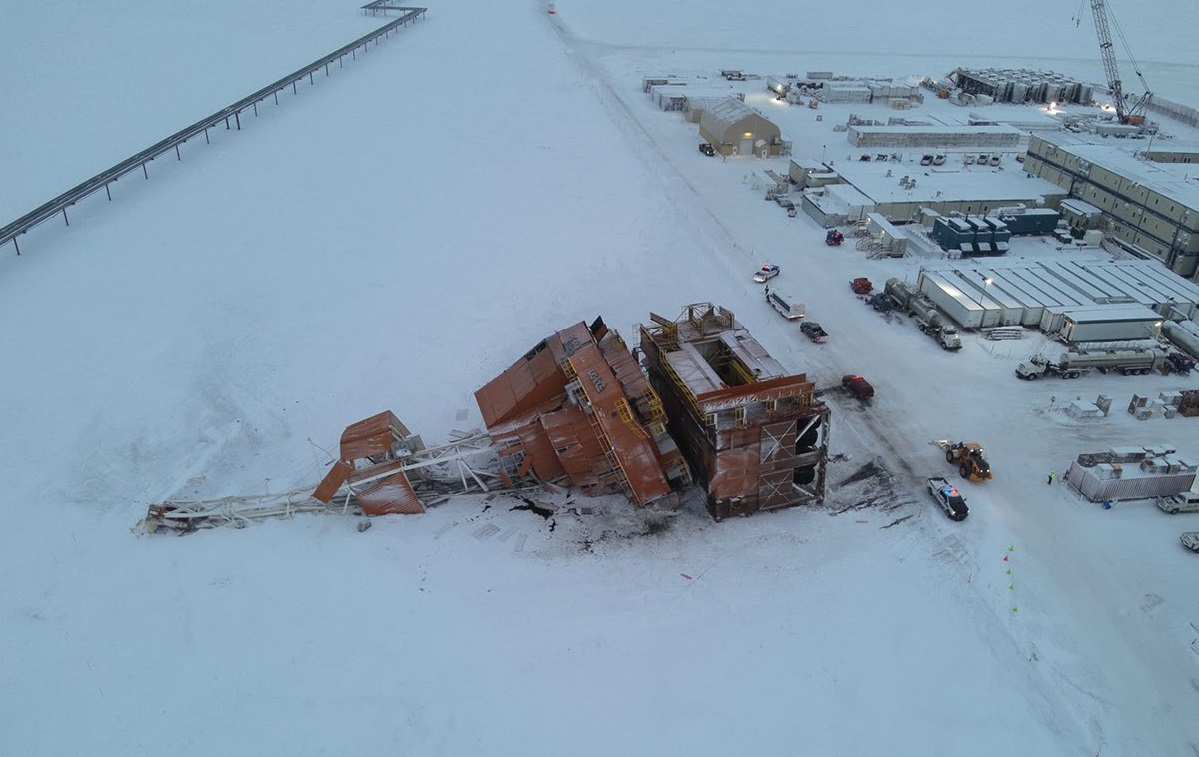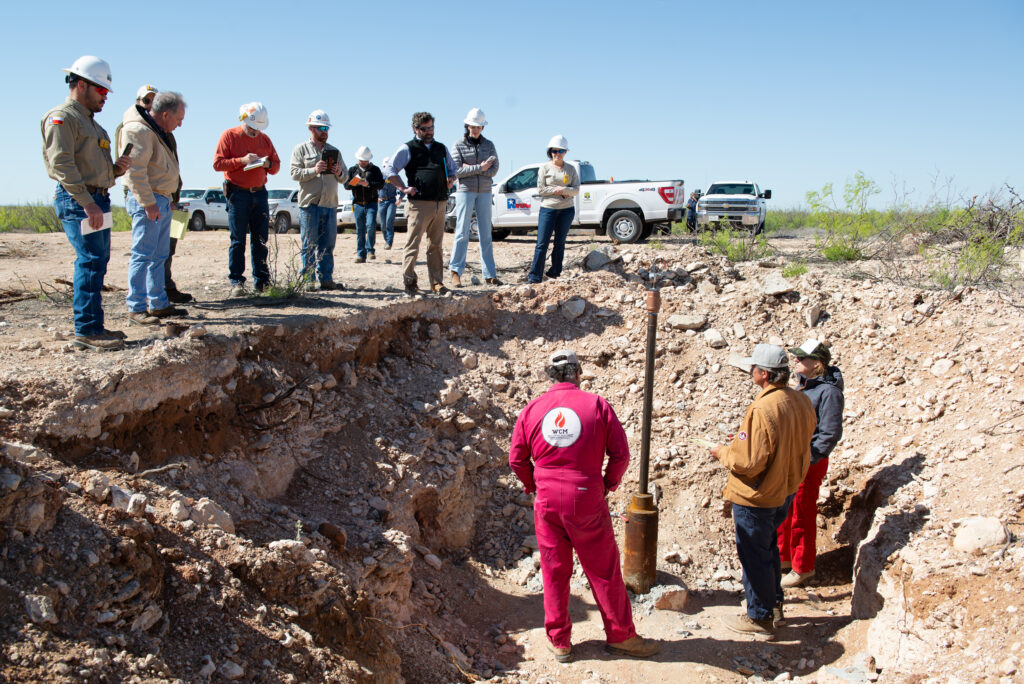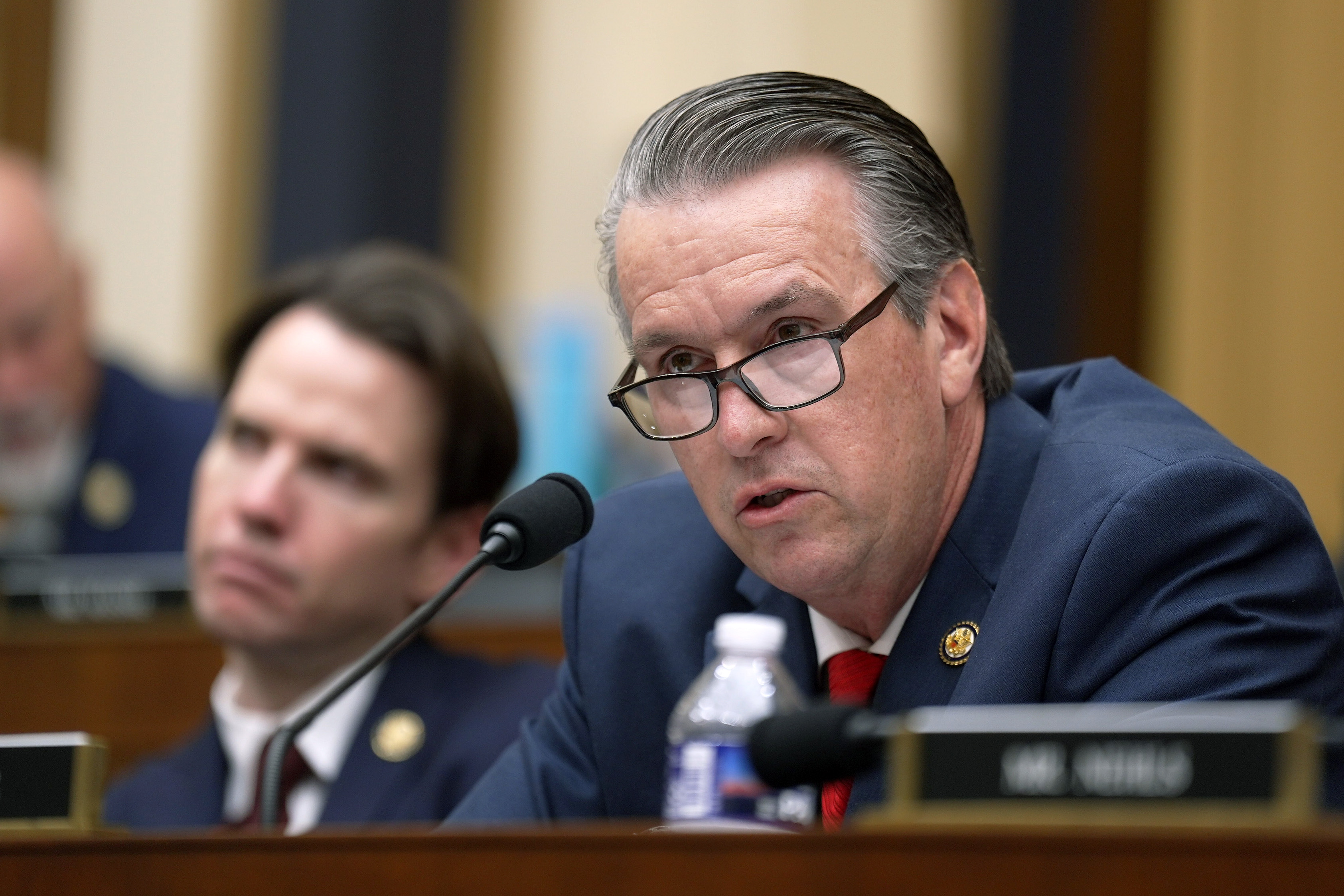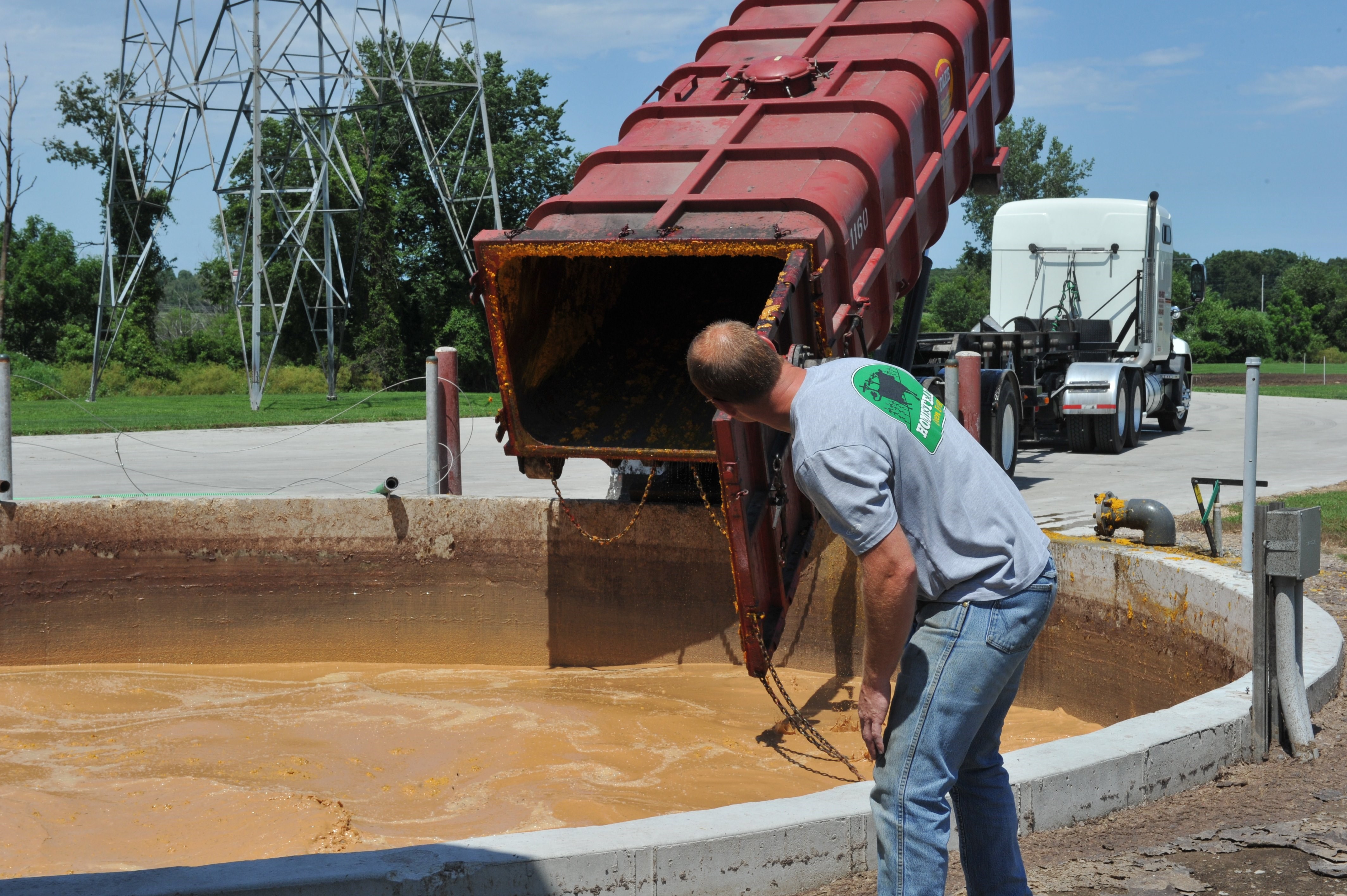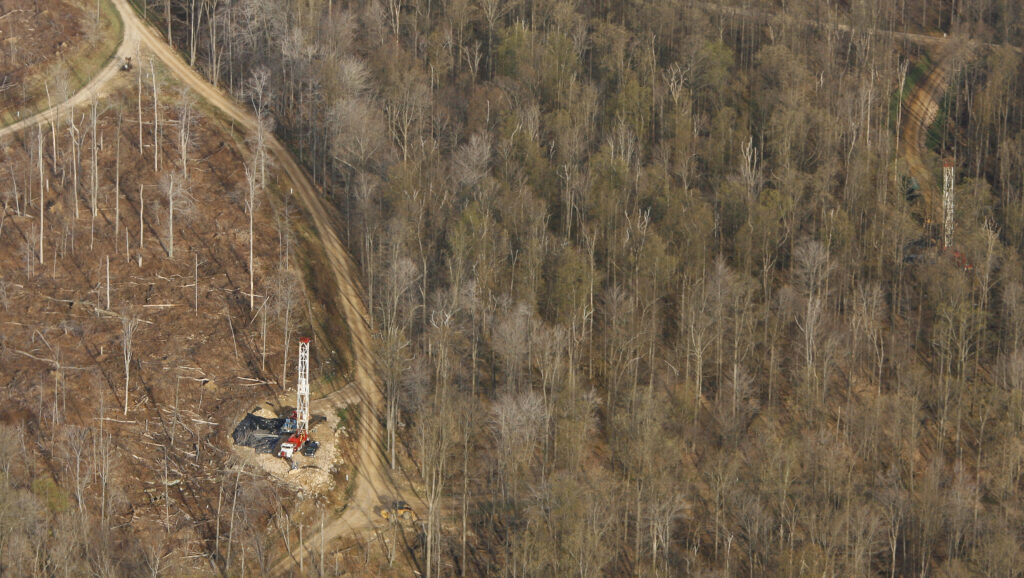Vermont’s Climate Superfund Act became law last summer. New York followed its lead in December. Four days later, the Chamber of Commerce and the American Petroleum Institute sued Vermont for abusing its power and putting an unreasonable burden on the industry.
On May 1, the Trump Department of Justice sued both Vermont and New York to block enforcement of climate superfund laws, which seek to hold major fossil fuel companies accountable for their share of the emissions that have contributed to the increasing scale of costly climate disasters between 1995 and 2024.
The lawsuits came a day after the Trump administration sued Hawaii and Michigan to block more conventional liability suits the states were yet to file against the fossil fuel industry for costs associated with specific climate-related damages.
Now, Vermont is facing twin climate challenges, both with big economic considerations.
We’re hiring!
Please take a look at the new openings in our newsroom.
See jobs
State Treasurer Michael Pieciak and the Vermont Agency of Natural Resources are working to find the cost of environmental damage that can be linked to individual companies’ fossil fuel products from 1995 until 2024, a calculation that will rely heavily on climate attribution science.
In the courts, meanwhile, the state is left to decide how best to defend the novel Climate Superfund Act, which is based on the established environmental doctrine of “polluter pays” for hazardous waste remediation under the Comprehensive Environmental Response, Compensation, and Liability Act—the existing Superfund law—and adapts that to climate change.
Through all this, the question remains: how will the small northern rural state afford much-needed adaptations to a warming climate in a world where natural disasters are increasing in scope and fury and don’t wait for court verdicts.
The Justice Department’s involvement, in particular, increases the likelihood that court battles will be long and expensive, experts said. Despite this, those who stand behind the bill show no signs of giving up.
“Did I expect it? No. Am I surprised? Also, no,” state Sen. Anne Watson, a sponsor of the Vermont Climate Superfund Law, said about the challenge from the federal government. Her confidence in the defensibility of the superfund act hasn’t wavered.
The quick response by the oil lobby and federal government, she said, was, “really heartening, weirdly, because it tells me that we have hit upon a strategy that is effective, that is getting the attention of the fossil fuel industry, that they know this is a legitimate mechanism to hold them accountable.”
Ben Edgerly Walsh, the Climate and Energy Program director at the Vermont Public Interest Group, said the Justice Department’s involvement was unusual, but not a shock. VPIRG was a key advocate in passing the bill, and Edgerly Walsh views the lawsuit as a direct response from President Trump to big oil CEOs who met with him, seeking protection from state actions, in March.
“Frankly, the president is using the Department of Justice as a political shield for his allies in the oil industry,” Edgerly Walsh said. “It’s incredibly disappointing to see the U.S. system of justice used that way. It’s unprecedented.”
Trump in April signed an executive order for Attorney General Pam Bondi to “take action to stop the enforcement of state laws that unreasonably burden domestic energy development.”
In a press release on May 1, Bondi wrote: “These burdensome and ideologically motivated laws and lawsuits threaten American energy independence and our country’s economic and national security. The Justice Department was working to ‘Unleash American Energy’ by stopping these illegitimate impediments to the production of affordable, reliable energy that Americans deserve.” The Justice Department declined to respond further about the ongoing court action.

The Chamber of Commerce and American Petroleum Institute’s legal filings from December in opposition to the climate superfund laws passed by Vermont stated that the federal government, not states, has the power to regulate emissions. Attorneys general from 24 conservative states–including West Virginia, Alabama and Alaska—joined the Chamber of Commerce’s earlier challenge to Vermont’s climate superfund law on the same day the Trump Administration filed its own suit in May.
The Justice Department told the court that Vermont had infringed on presidential authority, and that its legislation is a danger to the nation’s security. This came with a nearly identical lawsuit against New York.
Watson, a Democrat representing Montpelier, said her motivation is to hold the industry accountable for its harms and ease the load that a warming climate is causing Vermonters. “We’re moving forward with it,” she said. ”People are having to shoulder a huge financial burden that they shouldn’t otherwise have to bear because of the products from the fossil fuel industry.”
The climate superfund is a strategy for the state to bring in money it needs to help cover the costs of climate disasters. Residents already pay high taxes, and Vermont hasn’t been able to find the funds to adapt to climate change within its borders.
“Governor Scott is right, you just can’t tax Vermonters any more.” said Patrick Parenteau, professor emeritus at the Vermont Law and Graduate School and former counsel to the EPA’s regional office in New England. Lawmakers have been working to keep education spending under control, he said, and the fiscally conservative governor is unlikely to add climate costs to the burden on taxpayers.
The same goes for the legal costs of defending the new superfund law in court—Parenteau warned the legislature hasn’t realized just how much this cost will grow in the coming years. “They saw it coming. They heard about it. I don’t think they fully appreciated just how complicated and expensive it’s going to get,” he said.
Even if Vermont successfully fights off the lawsuits, he predicts it could take up to a decade for money to actually come back in from the superfund to help people pay for climate adaptation.
Meanwhile, the climate crisis has already arrived. A year ago, Hurricane Beryl tore through the middle of the state, flooding homes and farmland, and two years ago a once-in-a-lifetime flood did around a billion dollars of damage to the state, Watson said. Lawmakers saw this wreckage firsthand, as the river in the state’s capital overflowed in 2023, spilling into government buildings while local businesses resorted to piling their soaked belongings in the streets.
Anthony Iarrapino, a lawyer for the Conservation Law Foundation, is one of the Vermonters who has seen this extreme weather and lobbied for the climate superfund last year. While he isn’t directly involved in the lawsuits, he and Edgerly Walsh were in communication with the Agency of Natural Resources during this year’s legislative session about implementing the law.
“I’m happy to say that our legislature was not bullied by the Trump administration’s lawsuit out of moving forward,” Iarrapino said.
This story is funded by readers like you.
Our nonprofit newsroom provides award-winning climate coverage free of charge and advertising. We rely on donations from readers like you to keep going. Please donate now to support our work.
Donate Now
Iarrapino said the Trump administration’s support and protection of the fossil fuel industry do not reflect the real costs greenhouse gas emissions have had on the state through extreme weather events heightened by a warming planet.
“It’s just hard to accept their complaints with a straight face,” he said. “They just don’t have credibility here in Vermont, where we’re still hurting, we’re still suffering, we’re still paying the bills, we’re still nervously watching the weather forecast every time extreme rain is predicted or the air is too filled with forest fire smoke to go out.”
Iarrapino also said Vermont’s legislators and attorney general don’t believe there is a national energy emergency, as Trump declared on his first day in office, as domestic energy production has exceeded consumption in recent years.
Vermont Attorney General Charity Clark is trying to prove the claim of an emergency is false. On May 9, Vermont joined with 14 states, including Michigan, in a lawsuit against the president’s Energy Emergency declaration.
“There is no energy emergency in this country. American energy production is at an all-time high, and this is an attempt by the Trump Administration to illegally circumvent environmental protections that keep us healthy and protect our rivers, wildlife, and other natural resources,” Clark said in a statement.
While Clark is gearing up for legal battles, the treasurer is slowing down—not out of fear, Parenteau said, but from dedication to the task of figuring out how much the big oil companies actually owe the state.
In the last legislative session, Pieciak received more money and time to work with experts on putting the superfund law into action. The new deadline for estimating the cost of fossil fuels on Vermont’s climate is 2027.
“He’s smart about this,” said Parenteau. “He’s listening to people like me say, you better have a bomb-proof case because it’s going to be challenged to the max.”
Meanwhile, Vermont House Republicans introduced legislation in May to stop the program to enact the superfund altogether. This also didn’t come as a surprise—the superfund passed in 2024 without the support of most Republicans, and Gov. Scott, a Republican, refused to sign it out of concern for the cost and risk of taking on big oil companies alone. Still, he’s a named defendant in the Trump Administration’s lawsuit. His office didn’t respond to a request for comment on the lawsuit.
This partisan divide has come up in other disputes this year over whether Vermont’s climate goals are too ambitious. In response to the effort to repeal the superfund program, Watson said, “The House Republicans are trying to do a lot of things around walking back any sort of climate legislation, and especially as chair of natural resources, I have no intention of entertaining that.”
Watson’s commitment to the superfund approach has taken root in other states that are considering following Vermont’s example. “I think if other states or countries want to see a dime from the fossil fuel industry, they should initiate similar laws of their own to hold the fossil fuel industry accountable,” she said.
Four states now have their own bills pending, and six more have introduced bills that didn’t pass committee this year but could come back in 2026. Nor is the United States the only country where a desire for this type of legislation is gaining support. A new survey from Greenpeace and Oxfam shows that a majority of people from across the world would support their governments fining polluters for climate damages.
In the U.S., it is the red states that are arguing state superfund laws would create a “‘confused patchwork of standards.’” In the Chamber of Commerce’s lawsuit, these states support the argument that climate superfunds are preempted by the federal Clean Air Act, as well as multiple clauses of the Constitution—arguments that are at the heart of the Trump Administration’s lawsuit, as well.
Environmental advocates behind the superfund legislation anticipated this attack and made sure their approach did not seek to regulate current and future emissions, as the Clean Air Act does. Instead, the superfund imposes retroactive fines on past greenhouse gas pollution, using attribution science to calculate harms caused by individual companies’ emissions.
Watson has confidence going forward in the legality of the superfund. “I firmly believe that our bill is constitutional and that it is lawful,” she said. “… They wouldn’t be pushing back so hard if we didn’t have an excellent case.”
Both suits are on track to reach the Supreme Court, unless a new president comes to office and drops the Trump administration case before then. Even if the superfund survives this first round of challenges, there could be another set of tests in the future when the oil companies that have been watching from the sidelines so far become directly involved. Parenteau said those companies will likely file their own lawsuits against state superfund laws.
On the other side, Vermont’s lawyers could soon be joined by regional organizations supporting the superfund law, among them the Conservation Law Foundation and the Northeast Organic Farmers Association, both of which are waiting to hear if the federal district court will approve them to jointly intervene in the chamber’s case on behalf of Vermont citizens and farmers.
No one has intervened on either side in the Trump Administration’s lawsuit, and it’s still unclear whether the cases will be consolidated. Recently, the judge appears to be slowing down to coordinate the schedules of both cases. On Wednesday, all parties filed an agreed-upon request for both cases to share the same schedule, which suggests it’s likely that the court will hear them together.
What promises to be a drawn out process is one many Vermonters can’t afford, environmental advocates say, as the costs of flooding and other climate-amplified weather events mount in a state where the climate crisis is only forecast to get worse.
About This Story
Perhaps you noticed: This story, like all the news we publish, is free to read. That’s because Inside Climate News is a 501c3 nonprofit organization. We do not charge a subscription fee, lock our news behind a paywall, or clutter our website with ads. We make our news on climate and the environment freely available to you and anyone who wants it.
That’s not all. We also share our news for free with scores of other media organizations around the country. Many of them can’t afford to do environmental journalism of their own. We’ve built bureaus from coast to coast to report local stories, collaborate with local newsrooms and co-publish articles so that this vital work is shared as widely as possible.
Two of us launched ICN in 2007. Six years later we earned a Pulitzer Prize for National Reporting, and now we run the oldest and largest dedicated climate newsroom in the nation. We tell the story in all its complexity. We hold polluters accountable. We expose environmental injustice. We debunk misinformation. We scrutinize solutions and inspire action.
Donations from readers like you fund every aspect of what we do. If you don’t already, will you support our ongoing work, our reporting on the biggest crisis facing our planet, and help us reach even more readers in more places?
Please take a moment to make a tax-deductible donation. Every one of them makes a difference.
Thank you,




